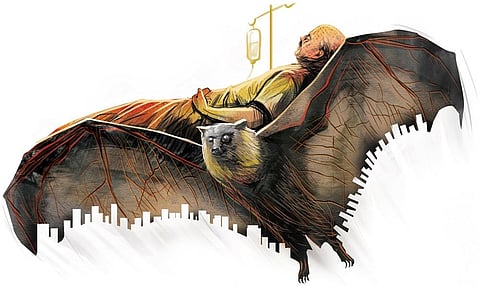

THIRUVANANTHAPURAM: The health department has stepped up surveillance for Nipah virus in the state and has asked hospitals to monitor patients reporting symptoms similar to the viral infection.
The alert came as this is the breeding time of bats, the carriers of the virus.
Health Minister Veena George said monitoring will be increased in all districts, even though Nipah cases have been previously reported only in Kozhikode and Ernakulam.
Vigil against the virus will be carried out with the cooperation of the forest and animal husbandry departments.
The health department will hold a workshop on its Nipah experience at Gender Park in Kozhikode on May 12.
Health workers, scientists from Indian Council of Medical Research, National Institute of Virology, State Institute of Virology, officers from forest and animal husbandry departments will attend.
Nipah virus has a higher mortality rate than other viral infections, even Covid. It is a zoonotic virus, which means it can be transmitted from animals to humans.
It can also be transmitted through contaminated food or directly between people. Nipah infection is considered an emerging infectious disease threat by the World Health Organization.
Nipah outbreak was first reported in Perambra in Kozhikode in May 2018 and later spread to adjoining Malappuram.
Sixteen people died. The outbreak was contained and declared over on June 10, 2018.
The virus was detected again next year in Ernakulam, but none died. The last reported case was in 2021, in a 12-year old boy from Kozhikode who died later.
Fruit bats are considered the source of Nipah virus, though the health department could not establish the link of transmission from bats to humans.
The National Institute of Virology, Pune, had detected antibodies against Nipah in the samples collected from bats from the surroundings of the victims’ houses.